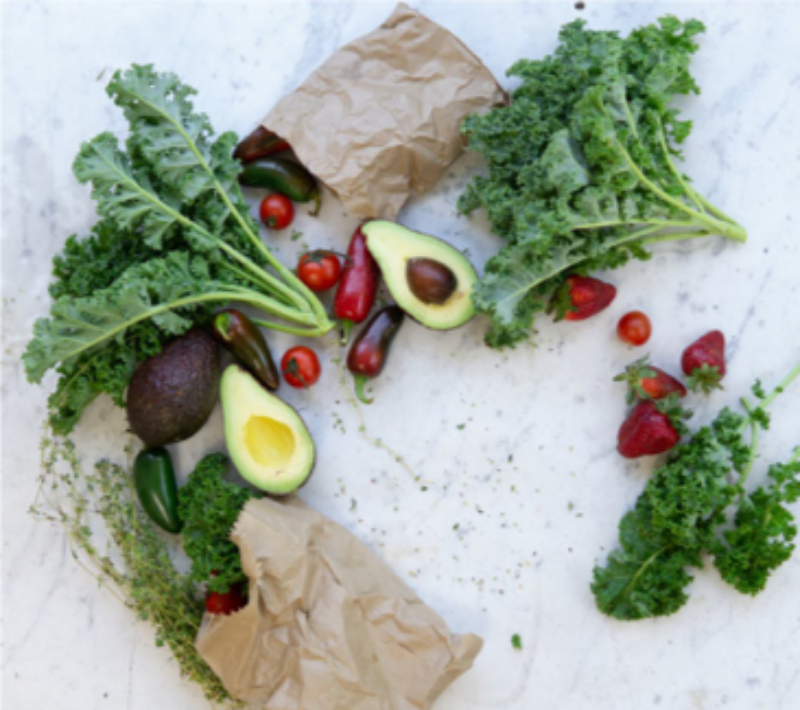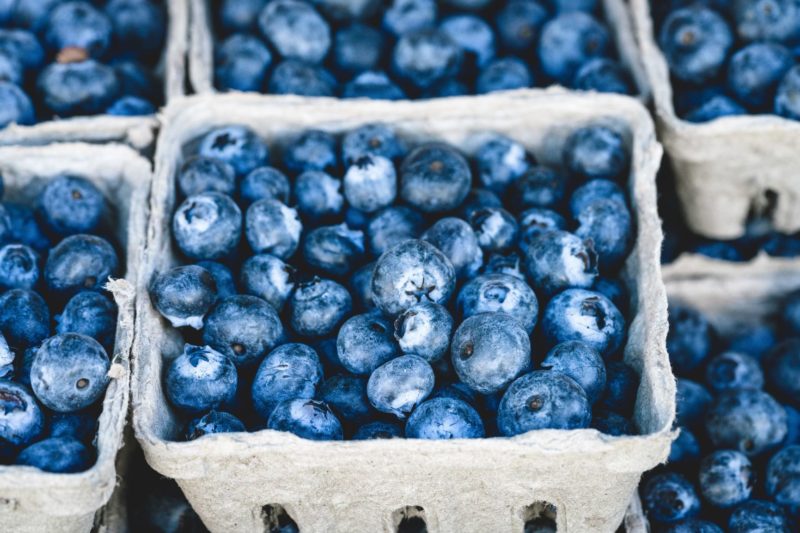November 2019 Tips for Healthy Eating to Help Manage Stress
By Savannah Hobbs
Stress! It can feel like a constant companion. While we all may be familiar with the feelings of stress, the effects on our eating and health can sometimes be a mystery. But what is stress? It is any physical, mental, or emotional strain, and it can have serious consequences when felt over long periods of time. It can impact what we eat through cravings, overeating, or undereating. It can impact our motivation to cook or be physically active, and can even affect our immune response leading to colds or illnesses. So what can we do? It’s easy to say: “Just be less stressed!” But if our stress is here to stay (at least for a little while), we need options and tricks for managing it and staying healthy.

So how can we limit the impact of stress on our health?
Tip 1: Listen to Your Body!
Stress can be sneaky. In today’s world, because we move so quickly from job to soccer practice to school and back again, it can be difficult to recognize when stress is straining our bodies. It is possible to not even recognize feelings of stress until the negative health effects have already started to set in. By listening to our bodies and recognizing when we are stressed, we can combat the health consequences of too much stress early on!
Ask yourself: How does my body tell me that I am stressed?
Tip 2: Don’t Forget Self-care!
Taking care of ourselves when life seems all-consuming can feel like a low priority. When things get hectic, it is common to sacrifice sleep, mealtime, or exercise to make up some extra time. These sacrifices can throw our bodies into survival mode. This can induce the fight or flight response, making it more difficult to sleep, avoid illness, or even relax when things calm down. It is important to make sure to eat regularly throughout the day and allow our bodies the rest that it needs.
Ask yourself: What are some healthy ways that I might manage stress?
Tip 3: Eat Stress-Busting Foods!

While there may not be a miracle cure for stress, there are foods that both fuel and nourish our bodies, keeping our health on the right track.
- Antioxidants: These can help stop or delay damage to cells. Some examples include: tea, blueberries, beetroot, beans, tomatoes, kale, and even (!) dark chocolate.
- Omega-3 Fatty Acids: These can help fight against inflammation in the body, which is a stress response. Some examples include: nuts, flax, and chia seeds, soy products, and fish.
- Vitamins: Certain foods are high in nutrients like vitamins C, B6, and E that help bolster our immune system to offer extra protection during stressful times. Some examples include: citrus fruits, dark leafy green vegetables, bell peppers, and garlic.
Ask yourself: What kinds of foods could I include in my diet to help manage stress?
Tip 4: Watch Out For Stress-Inducing Foods!
Certain foods can put strain on our bodies, or can exacerbate the stress response. Caffeine, for example, can affect sleep and cause dehydration. Alcohol can also dehydrate us and acts as a depressant. Foods high in sugar and calories can leave us feeling bloated, sluggish, and tired.
Ask yourself: What kinds of foods am I drawn to when I feel stressed?
Follow These Tips to Help Manage Stress

Certain times in life can feel more stressful than others. The more we listen to our bodies and take care of ourselves the lower the impact of stress on our health. Certain types of foods that are rich in antioxidants, omega-3 fatty acids, or certain vitamins and nutrients can help us avoid some health consequences of stress. Eating well can keep us on the right track, even when life gets hectic!
Get to know our author
Savannah Hobbs is a fourth year Ph.D. candidate studying Food Science and Human Nutrition. Hobbs is originally from Anchorage, Alaska and grew up in Lincoln, Nebraska. Her dissertation work focuses on the effects of stress on healthy eating and physical activity. On top of this, she also looks at the role of a stress-management component in obesity prevention interventions.
More Information
For additional resources to healthy eating, check out these programs from our registered dietitian nutritionists. More health tips are also available at the College of Health and Human Sciences Pinterest board. Lastly, don’t forget to sign up for the KRNC monthly newsletter!


